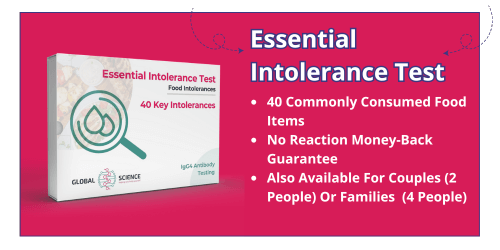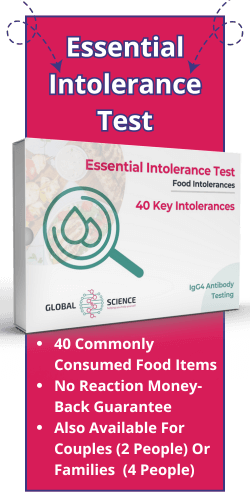Ulcerative colitis is a kind of inflammatory bowel disease that causes both inflammation and ulcers along the digestive tract. Symptoms include diarrhoea, weight loss, and abdominal pain, usually worsening over time as opposed to developing suddenly. Unfortunately, there is no known cure for the condition, but that doesn’t mean there aren’t ways we can manage it. In fact, recent research indicates that an intolerance test could be the key to managing the symptoms of ulcerative colitis.
How an intolerance test can help ulcerative colitis
A 2018 Chinese study saw that a food intolerance test helped patients improve their ulcerative colitis symptoms markedly. The researchers used an IgG test to inform an elimination diet for patients to follow, and compared to a control group who followed a normal healthy diet, saw a noticeable improvement in symptoms.
“After intervention, the Mayo score was significantly lower in the intervention group than in the control group (2.41 ± 0.89 vs 3.52 ± 1.15, P < 0.05). The number of patients with extra-intestinal manifestations decreased from 7 to 2 in the intervention group and from 6 to 5 in the control group.”
– Inflammatory Bowel Diseases, Volume 24, Issue 9, Sept 2018
What it means for those with Ulcerative Colitis
Those who showed an intolerance to certain foods and avoided them saw that their symptoms improved and that their overall quality of life improved as a result. This is quite promising for those suffering from any inflammatory bowel disease, as similar research has found IBD sufferers are prone to food allergies and intolerances.
While there will no doubt be more research into the effects of diet and food intolerances on IBD sufferers, it looks like a tailored elimination diet guided by a food intolerance test is certainly a step in the right direction. At the very least, it can help to improve symptoms and offer a better relationship with food to those diagnosed with ulcerative colitis.







